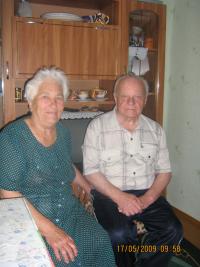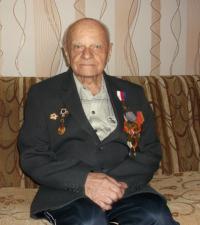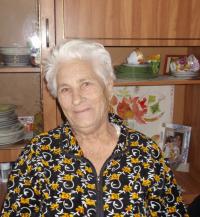Cyril lived there, and Metoděj over there, there were Czech villages everywhere

Download image
Jevgenie Ružečko (Růžičková, née Jasanová) is a Czech native from the northern Caucasus. She was born in 1926 in Kirillovka near Novorossiysk. At the end of the German occupation of the Caucasian Black Sea coast in 1943, she and her family were sent for forced labour to Crimea, where she briefly stayed in the Czech village Čechohrad. After her return to Kirillovka in 1945 she was working in the fields, in the vineyards and as a worker in the cement mill in the nearby village Gajduk. She married Leonid Ružečko (Růžička) who came from Kirillovka and they had three children. She was a housewife until 1960 and then she spent the following twenty years working as an operator in a fuel depot. She knows a lot about the history of the Czech community near Novorossiysk from stories told by her parents and she vividly recounts her and her husband’s experiences from the era of World War II. She speaks the Czech dialect fluently, and she also uses it to communicate with her children and grandchildren (her great-grandchildren no longer understand Czech).


